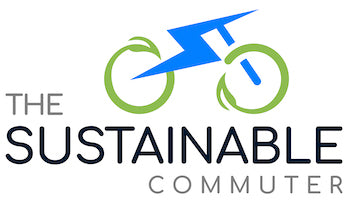
Hybrid and Electric Cars: The Future of Sustainable Transportation?
Share
Hybrid and electric cars have gained popularity recently as people become increasingly concerned about the environment and the need to reduce carbon emissions. As technology continues to evolve, the future of sustainable transportation appears to be moving toward hybrid and electric cars. In this article, we'll explore the pros and cons of hybrid and electric cars and their current state and future potential.
Advantages of Hybrid and Electric Cars
One of the main advantages of hybrid and electric cars is their environmental benefits. Hybrid cars produce fewer emissions than traditional gasoline-powered cars, while electric cars produce zero emissions. By choosing a hybrid or electric car, you can help reduce air pollution and greenhouse gas emissions, which can contribute to climate change.
In addition to their environmental benefits, hybrid, and electric cars are also more fuel-efficient than traditional cars. Hybrid cars typically have better gas mileage and use less fuel, saving you money on gas in the long run. Electric cars don't use gas and can be charged using electricity, which is generally cheaper than gasoline.
Government incentives and policies can also make hybrid and electric cars more appealing. Many governments offer incentives to encourage people to purchase hybrids and electric cars, such as tax credits, rebates, or free parking. Some cities even offer carpool lane access to hybrid and electric cars, which can save time during rush hour traffic.
Another advantage of hybrid and electric cars is that they generally have lower maintenance costs. Electric and hybrid cars typically have fewer moving parts than traditional cars, which means there is less wear and tear and fewer parts that can break. This can translate to lower maintenance costs over the life of the vehicle.
Lastly, hybrid and electric cars offer a quiet and smooth ride. Electric cars are known for their quiet operation and lack of engine noise, making for a more relaxing driving experience. Additionally, electric cars have instant torque, which means they can accelerate quickly and smoothly.
Disadvantages of Hybrid and Electric Cars
One of the main disadvantages of hybrid and electric cars is their higher upfront cost. Hybrid and electric cars can be more expensive than traditional gasoline-powered cars, which may be a barrier for some buyers. However, the total cost of ownership over the vehicle's life may be lower due to lower fuel and maintenance costs.
Another disadvantage of electric cars is their limited driving range. Electric cars can typically travel around 100-300 miles on a single charge, depending on the model. This can be a concern if you plan to take longer trips or don't have access to charging infrastructure.
Charging infrastructure is another potential disadvantage of electric cars. Electric cars must be charged regularly to operate, so access to a charging station is essential. You may need to install a charging station at home, which can involve additional costs, or you may need to plan your driving routes to ensure you can access public charging stations.
Maintenance and repair costs can also be a disadvantage of hybrid and electric cars. While these vehicles typically have lower maintenance costs than traditional cars, they may require specialized maintenance procedures or parts, which can be more expensive or harder to find. You may need to find a mechanic who is knowledgeable about your vehicle.
Lastly, driving habits can also be a disadvantage of hybrid and electric cars. These vehicles often have different driving characteristics than gasoline-powered cars, such as instant torque and regenerative braking. To maximize your vehicle's efficiency, you may need to adjust your driving habits, such as avoiding rapid acceleration or braking.
Current State of the Hybrid and Electric Car Industry
The hybrid and electric car industry is currently experiencing a period of growth and innovation. Many automakers are investing in the research and development of electric cars, and new models are being released every year with improved range, performance, and features. According to a report by the International Energy Agency, sales of electric cars rose by 41% in 2020 despite the COVID-19 pandemic, and the global electric car stock surpassed 10 million vehicles for the first time.
Some key players in the electric car market include Tesla, known for its luxury electric cars with long ranges and advanced features, and Nissan, which produces the popular and affordable Nissan Leaf electric car. Other automakers such as Chevrolet, BMW, and Ford also invest in electric car production and release new models.
The impact of electric cars on traditional car manufacturers and the fossil fuel industry cannot be ignored. As the demand for electric cars grows, traditional automakers are shifting focus to electric car production and phasing out gasoline-powered cars. This shift has also led to a decrease in demand for oil and gas, which could have long-term impacts on the fossil fuel industry.
The growth of the electric car industry has also led to an increase in electricity production and consumption demand. While electric cars are more energy-efficient than gasoline-powered cars, they still require electricity to charge. This has led to increased investment in renewable energy sources such as wind and solar power to meet the growing electricity demand.
Future of Hybrid and Electric Cars
The future of hybrid and electric cars looks promising as advancements in technology and innovation continue to make these vehicles more practical, affordable, and accessible. One area of focus is battery technology, which is essential for electric cars. Electric cars are expected to have longer ranges and faster charging times as battery technology improves.
Charging infrastructure is another area of focus for the future of electric cars. Governments and private companies are investing in installing public charging stations, and some are developing fast-charging technology that can charge an electric car in minutes rather than hours. As charging infrastructure improves, the range anxiety associated with electric cars may become less of a concern.
Governments are also playing a role in shaping the future of hybrid and electric cars. Many countries have set targets for reducing greenhouse gas emissions and are implementing policies and incentives to encourage the adoption of electric cars. For example, the UK plans to ban the sale of new gasoline and diesel cars by 2030, while Norway has set a goal of making all new cars sold by 2025 electric or hydrogen-powered.
Final Thoughts
Hybrid and electric cars offer many advantages over traditional gasoline-powered cars, including environmental benefits, fuel efficiency, and cost savings. However, they also have disadvantages, such as higher upfront costs and limited driving ranges.
The hybrid and electric car industry is experiencing growth and innovation, with new models being released every year and advancements in technology and infrastructure. The future of hybrid and electric cars looks promising as battery technology improves, charging infrastructure expands, and governments continue to implement policies and incentives to encourage their adoption.
If you're considering purchasing a hybrid or electric car, weighing the pros and cons and considering your individual needs and circumstances is important. As the world continues prioritizing sustainability and reducing carbon emissions, hybrid and electric cars may become an increasingly practical and desirable option for many people.
